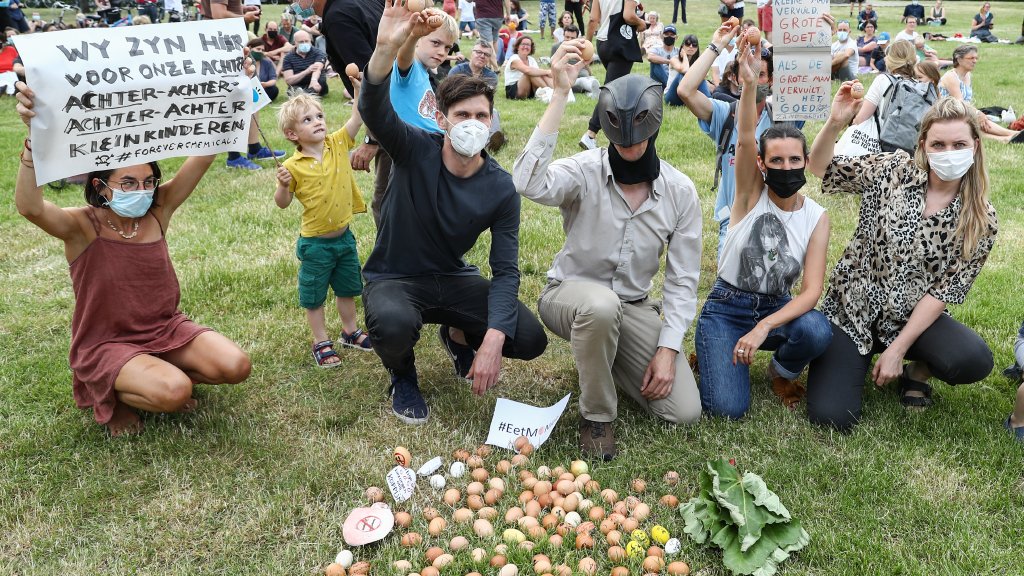Members of the Flemish government were informed of the problem of pollution caused by the hazardous chemical PFOS in September 2017, and did nothing about it, according to an email obtained by the VRT.
The email was also sent to Antwerp mayor Bart De Wever (N-VA), and seen by members of his team of city councillors, the VRT alleges.
As well as addressing the question of PFOS pollution in general, the mail also explicitly suggested investigating the contamination of ground in Zwijndrecht, the site of the 3M plant currently in the headlines.
PFOS, or perfluorooctanesulfonic acid, is a chemical hazardous to human and animal health. Since the latest issue emerged, people living within a radius of 15km have been advised to eat no more than two eggs a week laid in the area. Those guidelines were later refined by the Flemish government.
But the problem is not new. At least as far back as 2018, the problem of PFOS in soil was brought to light when ground was finally broken on the Oosterweel connection, a massive construction project to complete the Antwerp ring and allow lorries faster passage from the port to Germany and the North.
When ground was broken, large amounts of PFOS were found, and the alarm was raised.
But the authorities already knew about the problem before then.
The Oosterweel connection is a project that has been in the development stages since 1996, and before ground was ever broken 22 years later, had encountered all manner of objections.
The project is admittedly massive, very expensive, and cuts through parts of the city already under stress.
One of the biggest problems was a plan to carry traffic on a two-tier bridge for part of its route, which would have passed over a poor part of the city, including a school for handicapped children, dumping CO2 and diesel fumes all over them.
A referendum was called thanks to the efforts of citizen campaigners, and then Antwerp mayor Patrick Janssens backed the wrong horse and resigned, ushering Bart De Wever into the mayor’s office.
So when the alarm was raised with mobility minister of the time, Ben Weyts (N-VA), there was huge pressure to not let another problem stand in the way of Oosterweel. But such problems, like the substances that cause them, do not fade away if ignored.
He PFOS problem was discovered by Lantis – in those days still known as BAM – in charge of the development, which had taken hundreds of soil samples, realised the extent of the problem, and had informed just about everyone imaginable: waste management company OVAM, Flemish environment agency VMM, and as mentioned, the government and Antwerp city authorities.
Lantis also made clear that while its samples all came from one zone to the east of the 3M plant, it also had clear indications the problem would extend to the site in Zwijndrecht itself.
The result of Lantis’ alarm? Nothing at all.
No soil samples were taken in Zwijndrecht. For that we had to wait until this year, when the municipality of Zwijndrecht itself will took samples and came to the alarming conclusions that are now known.
There were no information sessions. The first was scheduled for October 17, 2017, but was cancelled four days earlier at the request of OVAM.
“Not necessary,” was the reason given.
Yesterday the Flemish parliament voted in favour of a committee of enquiry into the whole matter of PFOS contamination. More on that later.

